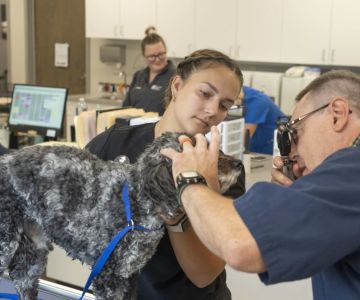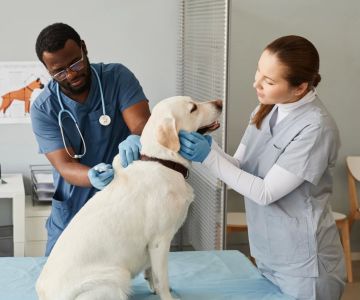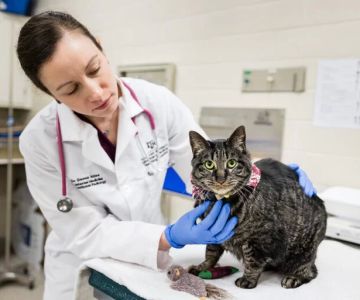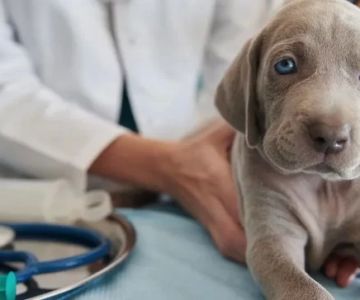What Degree Should I Get to Be a Veterinarian? A Realistic Guide to Your Veterinary Career
- 1 - Understanding the Role of a Veterinarian: More Than Loving Animals
- 2 - The Basic Education Pathway to Becoming a Veterinarian
- 3 - Pre-Veterinary Undergraduate Degrees: What to Choose
- 4 - The DVM Degree: Your Ticket to Veterinary Practice
- 5 - Real Stories from Veterinary Students: What They Wish They Knew
- 6 - Boosting Your Application: Getting Into Vet School
- 7 - What to Expect in Veterinary School and Beyond
- 8 - Is Becoming a Veterinarian Right for You?
- 9 - Make Your Veterinary Dream a Reality: Choose the Right Degree Today
1. Understanding the Role of a Veterinarian: More Than Loving Animals
Before diving into what degree you need to be a veterinarian, it's important to understand the real responsibilities of the role. Veterinarians are medical professionals who diagnose, treat, and help prevent animal diseases. From domestic pets to livestock and even zoo animals, a veterinarian must combine science, empathy, and critical thinking. This career isn't just about cuddling puppies—it requires academic rigor, long hours, and a commitment to animal welfare.
2. The Basic Education Pathway to Becoming a Veterinarian
The most direct answer to "what degree should I get to be a veterinarian" is a Doctor of Veterinary Medicine (DVM) degree. But before you get there, you'll need to complete a relevant undergraduate degree, often referred to as a pre-veterinary program. The typical path looks like this:
- Step 1: Bachelor’s degree (often in biology, animal science, or similar field)
- Step 2: Doctor of Veterinary Medicine (DVM or VMD) degree from an accredited vet school
- Step 3: Licensing and possibly a residency if pursuing a specialty
3. Pre-Veterinary Undergraduate Degrees: What to Choose
Veterinary schools don’t require a specific major, but choosing a science-heavy program will give you the best preparation. Common options include:
- Biology: Offers a strong foundation in anatomy, physiology, and genetics.
- Animal Science: More hands-on and directly relevant to veterinary work.
- Biochemistry or Microbiology: Great for those interested in lab research or internal medicine.
Ultimately, the best degree for a veterinarian is one that fulfills vet school prerequisites while allowing you to maintain a strong GPA and gain relevant experience.

22595 N Scottsdale Rd #120, Scottsdale, AZ 85255, USA
See Details4. The DVM Degree: Your Ticket to Veterinary Practice
The DVM degree is the cornerstone of your veterinary career. Accredited programs typically last four years and include classroom instruction, lab work, and clinical rotations. Programs like those at Cornell, UC Davis, and the University of Pennsylvania are among the most competitive and respected in the U.S. During these years, students study pharmacology, surgery, diagnostics, and animal behavior.
5. Real Stories from Veterinary Students: What They Wish They Knew
Sarah, a third-year DVM student at Colorado State, recalls how she underestimated the emotional toll of euthanasia procedures. “I thought vet school was just hard academically—but emotionally, it’s just as intense,” she says.
Jake, who majored in English before switching to animal science, shares: “I wish I knew earlier that your major doesn’t define your path. As long as you complete the prerequisites, you can make it.” These stories highlight that passion, perseverance, and preparation are more important than picking the “perfect” pre-vet degree.
6. Boosting Your Application: Getting Into Vet School
Vet schools are notoriously selective. To boost your chances, focus on:
- Strong GPA in science courses
- Relevant animal experience (vet clinics, shelters, farms)
- Letters of recommendation from veterinary professionals
- Good GRE scores (if required)
Passion counts, but preparation is what gets you in. Consider volunteering early or even shadowing a vet in high school to build a competitive edge.
7. What to Expect in Veterinary School and Beyond
Veterinary school is demanding. Expect long hours, frequent exams, and clinical rotations in areas like surgery, internal medicine, and emergency care. Upon graduation, you'll need to pass the North American Veterinary Licensing Examination (NAVLE). Some choose to specialize in oncology, cardiology, or exotic animal medicine—which may require internships or residencies.
8. Is Becoming a Veterinarian Right for You?
Ask yourself: Do you thrive under academic pressure? Are you emotionally resilient? Are you passionate about animal health and public safety? Becoming a veterinarian isn't easy—but for the right person, it’s incredibly rewarding.
9. Make Your Veterinary Dream a Reality: Choose the Right Degree Today
If you've been asking, "what degree should I get to be a veterinarian?"—the answer lies not only in academic choices but in your commitment to the journey. Whether you’re still choosing a pre-vet program or preparing for the DVM application, now is the time to take action.
Ready to take the next step? Explore top-rated pre-veterinary programs or comprehensive online courses that help you prepare for vet school admission. Choosing the right degree today can lead you straight into your dream role tomorrow.










